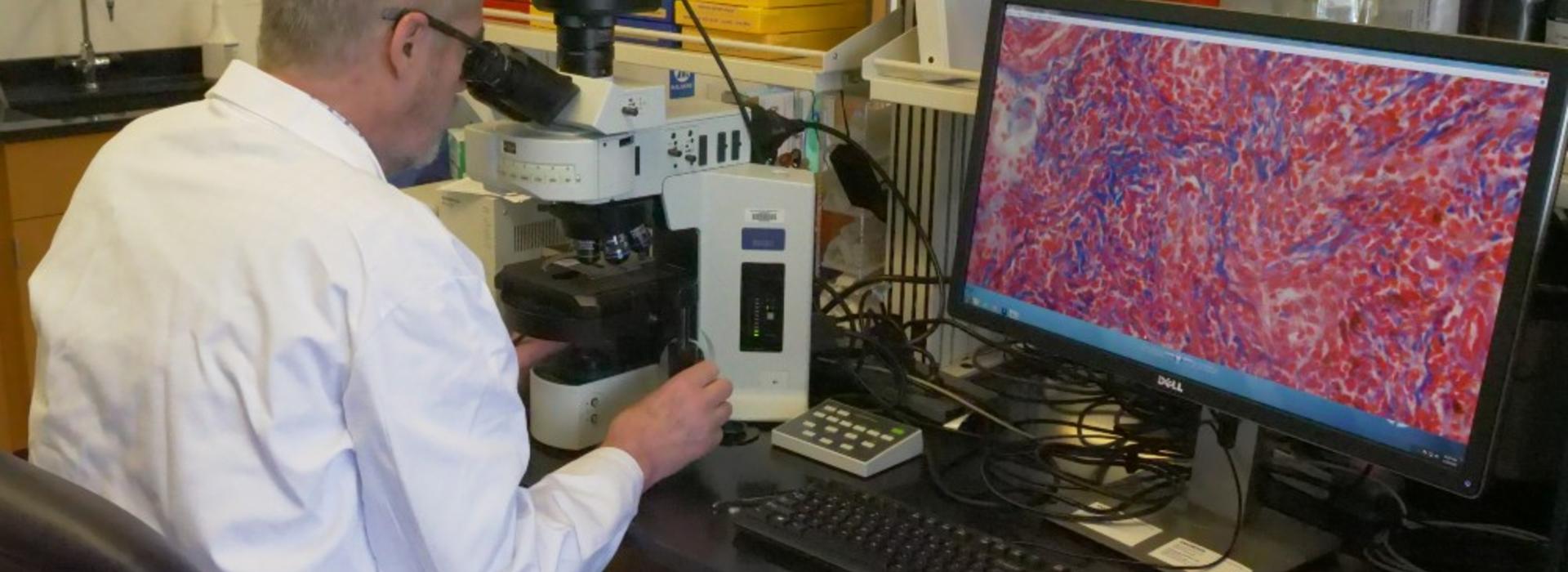
U of M researchers show promising results of Phase 1 drug trial for HIV patients
MINNEAPOLIS/ST. PAUL (01/31/2022) — A Phase 1 clinical trial conducted by University of Minnesota researchers has demonstrated the safety and efficacy of a novel immunotherapy drug in the treatment of human immunodeficiency virus (HIV). Results of the trial were published today in Nature Medicine.
“We are excited by the promise shown in this initial trial,” said Tim Schacker, MD, the study principal investigator and vice dean for research at the Medical School. “We hope to move this work into Phase II trials so that we can ultimately add a hopeful treatment for those living with HIV.”
The trial involves a novel investigative drug — N-803 — that has been studied in blood cancers and with other tumors. This is the first time the drug has been tested with HIV patients, moving beyond the preclinical phase of study.
This Phase 1 trial at the University enrolled 16 participants who were required to be on antiretroviral therapy (ART) for at least one year. Of enrollees, 11 completed the trial with minimal adverse effects, suggesting N-803 administration for HIV patients who are ART-suppressed is safe.
Although not a primary goal of the trial, participants using N-803 showed a significant decrease in HIV infected cells in the blood for a period of up to six months following treatment.
“What was exciting in this Phase 1 trial was that it actually showed a decrease in the number of HIV infected cells, suggesting this might eventually be part of a long-awaited HIV cure strategy,” said Schacker.
The research team hopes the drug will go to Phase 2 trials in the near future.
This research was funded by a grant from Altor BioSciences and ImmunityBio to the PI. Neither Altor BioSciences nor ImmunityBio played any role in study design or execution of the study.
-30-
Contact
Kat Dodge
kdodge@umn.edu
About the University of Minnesota Medical School
The University of Minnesota Medical School is at the forefront of learning and discovery, transforming medical care and educating the next generation of physicians. Our graduates and faculty produce high-impact biomedical research and advance the practice of medicine. We acknowledge that the U of M Medical School, both the Twin Cities campus and Duluth campus, is located on traditional, ancestral and contemporary lands of the Dakota and the Ojibwe, and scores of other Indigenous people, and we affirm our commitment to tribal communities and their sovereignty as we seek to improve and strengthen our relations with tribal nations. For more information about the U of M Medical School, please visit med.umn.edu.